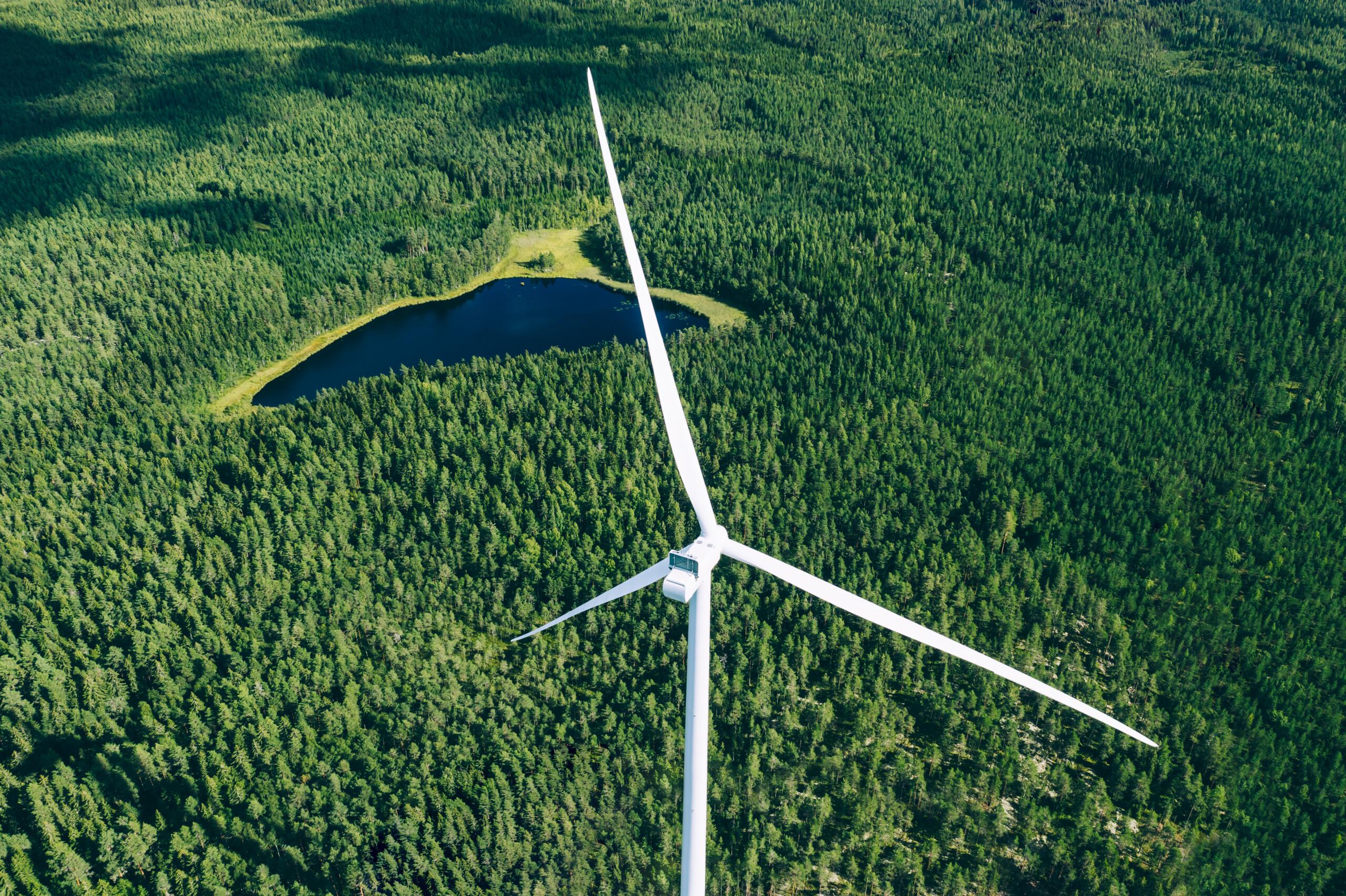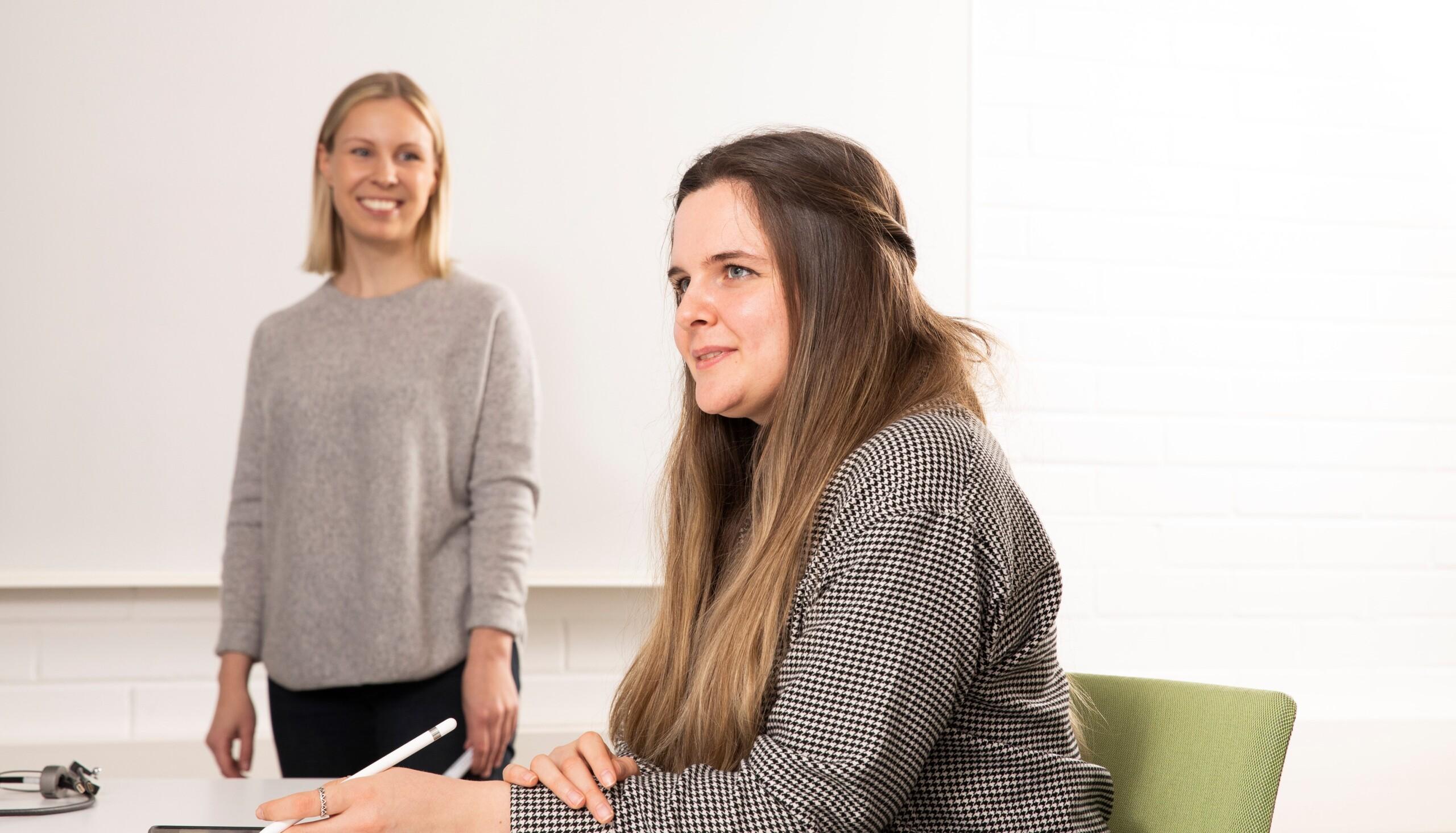The FITech Hydrogen study module provides an understanding of the hydrogen economy value chain.
The energy sector is undergoing a green transition from fossil fuels to renewable energy. The green transition has also started in industry, which is under great pressure to reduce emissions to mitigate climate change.
Recently, there has been increasing reference in the societal debate to hydrogen as a solution for applications that are otherwise difficult to decarbonise. There are many hydrogen-related investments planned both in Finland and in global scale.
The hydrogen economy and technologies are also of interest to energy professionals. Hydrogen is a subject that many want to learn more about.

Taru Hanski and Heidi Ahoniemi, who work at the energy company Helen, seized the opportunity to study an introductory course in hydrogen economy free of charge through FITech.
“The Introduction to hydrogen economy course gave a really good overview. The course provided me with good hydrogen-related vocabulary, which I could immediately apply in my work,” says Heidi Ahoniemi, who is responsible for the commercial development of hydrogen projects at Helen.
Taru Hanski, who works as a project manager in investment projects, does not yet work with hydrogen, but attended the course out of her own interest. She believes it is important to understand what hydrogen is all about in the current situation.
“So that you’re not completely out of the loop when you’re working in the energy sector,” she says. “The course complemented my own knowledge and felt suitable for me.”
Hydrogen already visible in politics
The Introduction to hydrogen economy course is divided into different sections according to the topic. The course is designed to provide a basic understanding of the hydrogen economy value chain, both for those working on the subject and for policy-makers and officials who need information to support their decision-making. The course can be completed entirely online at your own pace.
Both Hanski and Ahoniemi were able to study during working hours, but occasionally they spent some time studying also in the evenings or at weekends. However, the fair amount of time to complete the course gave some flexibility.
Some of the course content dealt with issues such as fossil fuels, which helped to understand the scale of the necessary change.
“The hydrogen economy is now being built on top of the old, so it is also good to understand the existing structures that renewable hydrogen will replace,” says Ahoniemi.
Taru Hanski says she is surprised at how much hydrogen is already involved in politics.
“Hydrogen plays a really big role, but it’s not visible in the media or in our own work, even though big decisions and policies have already been made.”
Green transition creates a need for new knowledge
The energy sector is at the heart of the green transition, so developments will be closely monitored and skills such as those related to new technologies will need to be continuously developed.

This is a big change, but where is the energy sector going from the point of view of the experts working in the sector?
“Towards decentralised production. It brings a lot of different solutions that need to be applied and make them play together as a whole. In addition, the role of consumers is growing, and people are getting more involved, for example through solar panels and geothermal heating,” says Taru Hanski.
The transition to hydrogen economy is a massive change. Political decisions and funding are needed to get the new technology off the ground. Heidi Ahoniemi also highlights the importance of developing one’s knowledge on the subject.
“There will be a demand for skills in clean technology and new business models in every company.”
FITech’s hydrogen economy study module brings together the educational offering from all Finnish universities of technology. It consists of 20–40 ECTS of studies and it is possible to study single courses or the whole module. We recommend starting with the Introduction to hydrogen economy course and then moving on to other courses according to your interests. All courses in the module are free of charge for participants. Read more on the study module’s info page.


